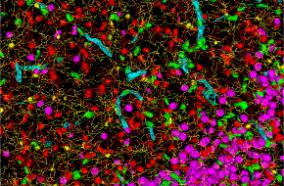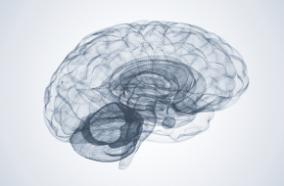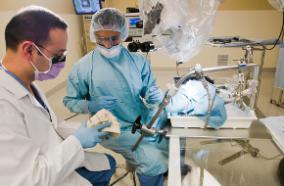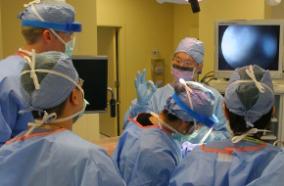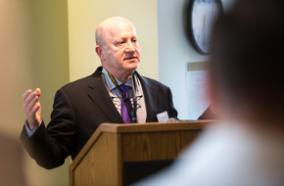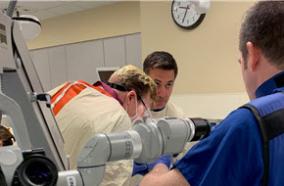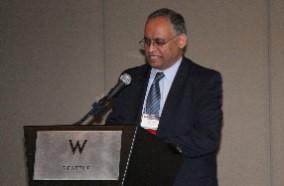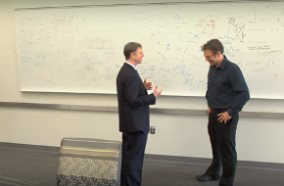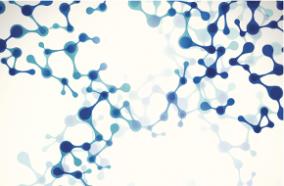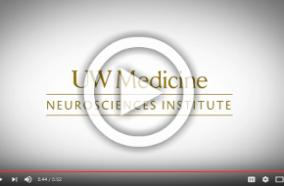4 years 10 months ago
CONCLUSIONS: SMARTTT is expected to generate novel findings regarding the impact, cost, and implementation of an adaptive clinical pharmacist-delivered intervention involving medications and CM to promote smoking abstinence among PWH. ClinicalTrials.govidentifier:NCT04490057.
E Jennifer Edelman
4 years 10 months ago
CONCLUSIONS: The baseline severity of scaphocephaly was similar across procedures and sites. Treatment methods varied, but cranial vault remodeling and strip craniectomy both resulted in satisfactory postoperative CIs. Use of tranexamic acid may reduce the need for transfusion in cranial vault cases. The wide craniectomy technique for strip craniectomy seemed to be associated with change in CI. Both findings seem amenable to testing in a randomized controlled trial.
Cordell M Baker
4 years 10 months ago
Sudden unexpected death in epilepsy (SUDEP) is the leading cause of death in patients with refractory epilepsy. Likely pathophysiological mechanisms include seizure-induced cardiac and respiratory dysregulation. A frequently identified feature in SUDEP cases is that they occur at night. This raises the question of a role for sleep state in regulating of SUDEP. An association with sleep has been identified in a number of studies with patients and in animal models. The focus of this section of the...
Gordon F Buchanan
4 years 10 months ago
CONCLUSIONS: Among patients with resected esophageal or gastroesophageal junction cancer who had received neoadjuvant chemoradiotherapy, disease-free survival was significantly longer among those who received nivolumab adjuvant therapy than among those who received placebo. (Funded by Bristol Myers Squibb and Ono Pharmaceutical; CheckMate 577 ClinicalTrials.gov number, NCT02743494.).
Ronan J Kelly
4 years 10 months ago
Viral genetic tools that target specific brain cell types could transform basic neuroscience and targeted gene therapy. Here, we use comparative open chromatin analysis to identify thousands of human-neocortical-subclass-specific putative enhancers from across the genome to control gene expression in adeno-associated virus (AAV) vectors. The cellular specificity of reporter expression from enhancer-AAVs is established by molecular profiling after systemic AAV delivery in mouse. Over 30% of...
John K Mich
4 years 10 months ago
INTRODUCTION: All major international guidelines for the management of infective endocarditis (IE) have undergone major revisions, recommending antibiotic prophylaxis (AP) restriction to high-risk patients or foregoing AP completely. We performed a systematic review to investigate the effect of these guideline changes on the global incidence of IE.
Michael L Williams
4 years 10 months ago
No abstract
Michael R Levitt
4 years 10 months ago
CONCLUSIONS AND RELEVANCE: In this cohort study of patients with TBI presenting to US level-1 trauma centers, qualitatively distinct profiles of symptoms and cognitive functioning were identified at 2 weeks after TBI. These distinct phenotypes may help optimize clinical decision-making regarding prognosis, as well as selection and stratification for randomized clinical trials.
Benjamin L Brett
4 years 10 months ago
Epidemiology provides an avenue for deciphering disease pathogenesis. By determining incidence across socioeconomic and demographic variables in the context of benign cerebral meningiomas (BCM), epidemiologic data may aid in elucidating and addressing healthcare inequalities. To investigate BCM incidence (per 100,000) with respect to sex, age, income, residence, and race/ethnicity, we queried the largest United States (US) administrative dataset (1997-2016), the National (Nationwide) Inpatient...
Arash Ghaffari-Rafi
4 years 10 months ago
Deep brain stimulation (DBS) of the subthalamic nucleus (STN) is a clinically effective tool for treating medically refractory Parkinson's disease (PD), but its neural mechanisms remain debated. Previous work has demonstrated that STN DBS results in evoked potentials (EPs) in the primary motor cortex (M1), suggesting that modulation of cortical physiology may be involved in its therapeutic effects. Due to technical challenges presented by high-amplitude DBS artifacts, these EPs are often...
Lila H Levinson
4 years 10 months ago
CONCLUSIONS: Therapeutic anticoagulation may be inferior to aspirin for stroke prevention in BCVI. Prospective research is warranted to definitively compare these treatment strategies.
Robert H Bonow
4 years 10 months ago
Diffuse intrinsic pontine glioma (DIPG) is a universally fatal tumor of the brainstem, most commonly affecting young children. Due to its location, surgical resection is not achievable, but consideration of a biopsy has become standard practice at children's hospitals with the appropriate neurosurgical expertise. While the decision to obtain a biopsy should be directed by the presence of atypical radiographic features that call the diagnosis of DIPG into question or the requirement of biopsy...
Matt C Biery
4 years 10 months ago
The Glasgow Outcome Scale-Extended (GOSE) has become one of the most widely used outcome instruments to assess global disability and recovery after traumatic brain injury. Achieving consistency in the application of the assessment remains a challenge, particularly in multi-center studies involving many assessors. We present a manual for the GOSE interview that is designed to support both single- and multi-center studies and promote inter-rater agreement. Many patients fall clearly into a...
Lindsay Wilson
4 years 10 months ago
ED-INNOVATION (Emergency Department-INitiated bupreNOrphine VAlidaTION) is a Hybrid Type-1 Implementation-Effectiveness multisite emergency department (ED) study funded through The Helping to End Addiction Long-term^(SM) Initiative, or NIH HEAL Initiative^(SM) efforts to increase access to medications for opioid use disorder (OUD). We use components of Implementation Facilitation to enhance adoption of ED-initiated buprenorphine (BUP) at approximately 30 sites. Subsequently we compare the...
Gail D'Onofrio
4 years 10 months ago
Vascular anomalies, including local and peripheral thrombosis, are a hallmark of glioblastoma (GBM) and an aftermath of deregulation of the cancer cell genome and epigenome. Although the molecular effectors of these changes are poorly understood, the upregulation of podoplanin (PDPN) by cancer cells has recently been linked to an increased risk for venous thromboembolism (VTE) in GBM patients. Therefore, regulation of this platelet-activating protein by transforming events in cancer cells is of...
Nadim Tawil
4 years 10 months ago
CONCLUSIONS: Pleural effusion is a common complication of cardiac surgery and is associated with significant morbidity and resource utilization. This study identifies several associated complications that should be considered in the presence of pleural effusion. Modifiable associated factors in the management of drains that may contribute to accumulation of pleural effusion include: early removal of chest drains, higher outputs and removal during or close to mechanical ventilation. Further...
John D L Brookes
4 years 10 months ago
Cardiomyocytes undergo significant structural and functional changes after birth, and these fundamental processes are essential for the heart to pump blood to the growing body. However, due to the challenges of isolating single postnatal/adult myocytes, how individual newborn cardiomyocytes acquire multiple aspects of the mature phenotype remains poorly understood. Here we implement large-particle sorting and analyze single myocytes from neonatal to adult hearts. Early myocytes exhibit...
Sean A Murphy
4 years 10 months ago
Temozolomide (TMZ) is the standard of care chemotherapy drug for treating glioblastomas (GBMs), the most aggressive cancer that affects people of all ages. However, its therapeutic efficacy is limited by the drug resistance mediated by a DNA repair protein, O⁶-methylguanine-DNA methyltransferase (MGMT), which eliminates the TMZ-induced DNA lesions. Here we report the development of an iron oxide nanoparticle (NP) system for targeted delivery of siRNAs to suppress the TMZ-resistance gene (MGMT)....
Kui Wang
4 years 10 months ago
No abstract
Kouki Nakamura
4 years 10 months ago
Objectives: Chronic primary vasculitis describes a group of complex and rare diseases that are characterized by blood vessel inflammation. Classification of vasculitis subtypes is based predominantly on the size of the involved vessels and clinical phenotype. There is a recognized need to improve classification, especially for small-to-medium sized vessel vasculitides, that, ideally, is based on the underlying biology with a view to informing treatment. Methods: We performed RNA-Seq on blood...
Erin E Gill
"university of washington"[affiliation] and neurological surge...: Latest results from PubMed
More posts about UW Neurological Surgery Recent PubMed Publications





